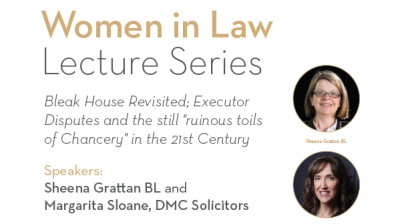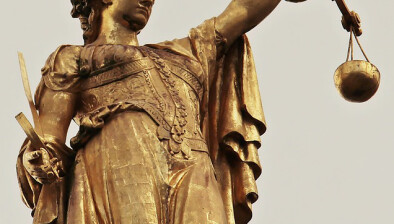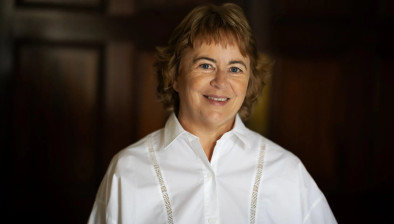High Court: Nephew who failed in challenge to will is not entitled to costs of proceedings

The High Court has refused to make an order for costs for a man who sought clarification on certain aspects of his uncle’s will. The deceased had gifted certain shares in Kerry Co-Operative to his nephew, but it was unclear if shares in Kerry Group plc were also gifted to the nephew.

About this case:
- Citation:[2023] IEHC 215
- Judgment:
- Court:High Court
- Judge:Ms Justice Nuala Butler
Ms Justice Nuala Butler had previously held that the Kerry Group shares were not gifted to the nephew and, based on the construction of the will, the residual gift of the shares fell into partial intestacy.
On the issue of costs, the court held that the nephew was not entitled to his costs from the estate for several reasons, including inter alia that the nephew ran the case in the knowledge that the legal fees would have a negative effect on the amount of the estate and the other party had made a reasonable “without prejudice” offer.
Background
The deceased owned shares in both Kerry Co-Operative and Kerry Group plc. The plaintiff was the executor of the estate. The first defendant was the nephew of the deceased and was the main beneficiary under the will.
The will was made in 1990 and the testator died in 2013. Between that time, some of the Kerry Co-Operative shares were cancelled and exchanged for shares in Kerry Group plc. The deceased gifted the Co-Operative shares to the nephew and the residue of the estate was to be distributed to his eleven siblings.
During the course of the administration of the estate, an issue arose regarding the Kerry Group shares. Specifically, the nephew claimed that they should be transferred to him. If not, they would pass into the residue of the estate.
Unfortunately, the deceased did not make provision for what was to occur if any of his siblings predeceased him. As seven of his siblings died before him, the residual gift partially failed which resulted in a partial intestacy.
The plaintiff, as executor, brought proceedings seeking to confirm who was entitled to the shares. He maintained a neutral view. The first defendant was the nephew and the second defendant was the deceased’s sister. The second defendant was appointed to represent her own interests and those of the surviving residuary legatees, the estates of the predeceased and those entitled on an intestacy.
In the main judgment, the court held that the Kerry Group shares did not transfer to the first defendant. Accordingly, the first defendant was “entirely unsuccessful” in the proceedings.
On the issue of costs, the plaintiff adopted a position that all the costs of the parties should be paid by the estate. Specifically, it was said that the costs should be paid from the residue of the estate. This potentially meant that the total costs of approximately €700,000 would be paid from the residue.
This would mean that the second defendant (and those she represented) would bear the entire costs of the litigation. Further, it would result in the second defendant having his costs paid even though he was unsuccessful in the case.
The plaintiff relied on Vella v. Morelli [1968] IR 11 which outlined the importance of testamentary disposition to the wider community and held that the costs of an unsuccessful party were to be paid from the estate.
The first defendant submitted that he had conducted the proceedings bona fide and should therefore have his costs paid.
The second defendant opposed the application. She argued that costs followed the event pursuant to section 169 of the Legal Services Regulation Act 2015 and there was nothing to say that probate litigation was exempt from this general rule.
High Court
Delivering judgment in the case, Ms Justice Butler began by providing a detailed outline of the relevant sections of the 2015 Act. It was held that the awarding of costs had to be determined by reference to the statutory provisions of the 2015 Act.
As such, the court had the power under section 168 to make orders for costs as against the parties to the proceedings and to make an order that the costs be paid from the property in the estate. The court held that the power to award costs was discretionary and it could not be said that all parties’ costs should be paid from an estate in all probate cases.
The court held: “The scope of that power and the flexibility as to the type of orders which the court can make is evident from s.168(2) particularly as regards the breaking down of costs orders to reflect the extent to which it is appropriate that a party should recover or alternatively be required to pay costs in respect of particular periods of time or procedural steps or elements of the proceedings.”
It was held that the principle in Vella v. Morelli that costs for all parties should be paid from an estate was based on the public policy considerations to the validity of testamentary instruments. These considerations did not apply to an administration or construction suit where the only question was the inheritance of the beneficiaries, the court held.
In exercising her discretion, Ms Justice Butler held that she must do justice between the parties. In doing so, it was held that she may have regard to the size of the estate relative to the costs of the litigation and the impact that the costs would have on the inheritance.
The court accepted that the plaintiff was entitled to his costs as he had issued the proceedings on the direct request of the nephew in order to obtain a resolution on the proper distribution of the estate. It was held that the fairest outcome was for the plaintiff’s costs liability to be split 50/50 between the nephew’s gift and the residue of the estate.
The court held that the first defendant was not entitled to his costs from the residue of the estate. The court reasoned that he had been unsuccessful in the proceedings and he had argued the case solely for his own benefit. Further, the dispute had a significant impact on the amount of the estate.
The court also held that the second defendant’s previous “without prejudice” offer had been reasonable and been rejected. The nephew had proceeded on the basis that he was at risk of costs from that point on.
Finally, the nephew had also run an application to admit extrinsic evidence which he was not successful in. Although the court admitted the evidence on a de bene esse basis, it had not been valuable. However, the application had taken up two days of a four-day hearing.
Finally, the court held that the second defendant was entitled to 90 per cent of her costs which were payable from the nephew’s gift. The second defendant did not obtain her full costs because she had added to the length of the case in her opposition to the first defendant’s motion to admit extrinsic evidence.
Conclusion
The court held that the plaintiff was entitled to his costs, which were to be split 50/50 between the two defendants. The first defendant was entirely unsuccessful and, for the reasons outlined, was not entitled to his costs from the residue. The second defendant was entitled to 90 per cent of her costs from the gift of the first defendant.
O’Connell v. O’Connell and Anor. [2023] IEHC 215












